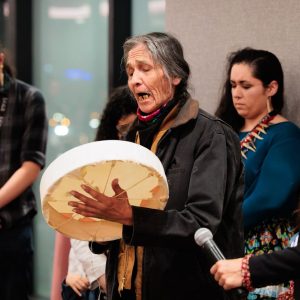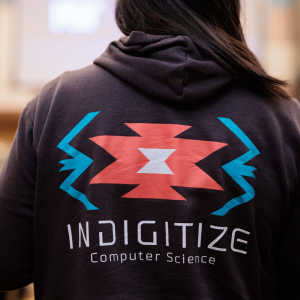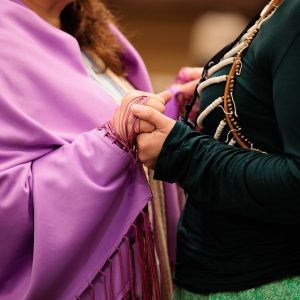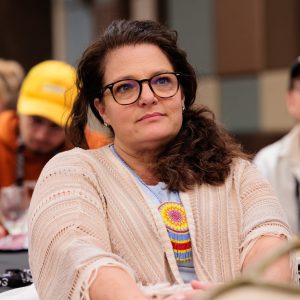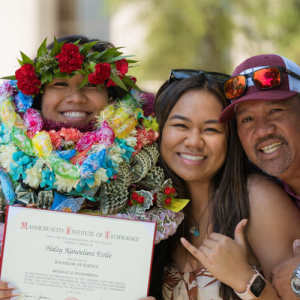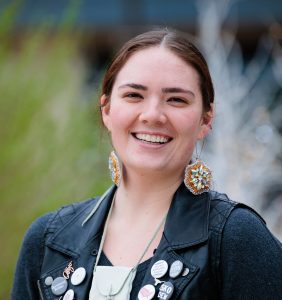“The Indigenous History of MIT”
In 2021, undergraduate students in an MIT course called “The Indigenous History of MIT” began exploring MIT’s connections to Native nations and tribal lands, the histories of Native communities in New England, and the history of Indigenous students, staff, and faculty on our campus. Prompted by presentations made by the students from that course, in 2022 MIT made an initial series of commitments to our Indigenous community, including:
Advancing Scholarship
- Creating a tenure-line faculty position in Native American studies within the School of Humanities, Arts, and Social Sciences to anchor the many efforts on campus around Indigenous issues.
- Adding two positions to the MLK Visiting Professors and Scholars Program; one of the additions will, each year, be reserved for a scholar of Native American studies.
- Pursuing a study to research and document the role Francis Amasa Walker, MIT’s third president, played in advancing the American reservation system.
- Funding two graduate fellowships for two academic years for students to pursue scholarship in Indigenous languages through the MIT Indigenous Language Initiative (MITILI), a master’s program in linguistics.
Community Support
In concert with MIT’s Office of the Vice President for Finance, the Indigenous History class conducted a review of payments by the Commonwealth of Massachusetts to MIT pursuant to the Morrill Act of 1862, which established MIT as a land grant university. Annual disbursements from the state ended without explanation in 2008. MIT is directing directing a sum equal to the amount MIT would have received if the Commonwealth were still making payments to Indigenous efforts on campus each year. The Institute jumpstarted the funding with a one-time allocation of $50,000. These funds are in addition to the support currently provided to our Native student groups.
MIT also remains committed to the Indigenous Communities Fellowship, which MIT Solve launched in 2018 to support innovators across the United States working to address Indigenous communities’ social, environmental and economic goals.
Sustained Engagement
MIT also charged the Indigenous Working Group, chaired by the Chancellor and the Institute Community and Equity Officer to advise Institute leadership on three issues:
- How to use the the funds MIT is directing to Indigenous efforts on campus for maximum impact
- Whether MIT should develop an official land acknowledgement statement or a statement of relationship with its internal and external Indigenous communities, and, if so, what the process for developing such a statement should entail
- How to best ensure that, going forward, the MIT administration maintains open, regular communication with Native American communities on and around campus.
The Indigenous Working Group Report
In December 2022, MIT released the report of the Indigenous Working Group and committed to the following actions:
- MIT will use the funds it has directed to Indigenous efforts to support our two Indigenous student groups: the American Indian Science and Engineering Society (AISES) and the Native American Student Association (NASA).
- At least for now, MIT will not develop an official Institute-wide land acknowledgement statement or a statement of relationship. A common theme in the report is the need to build relationships with Indigenous communities, people, and Nations rather than rush to symbolic actions. That work must precede an official statement. The language that frames the current statement has been updated to provide context and encourage an active, rather than passive, commitment to relationship building.
- Arts Initiatives and the MIT Libraries will identify space on campus for an exhibit of Indigenous art. Longer term, MIT is working to diversify the Institute’s public art collection and will take special care to ensure Indigenous representation.
- The working group also identified human resources—leaders, supporters, advisors, and connectors—as essential to ensuring open, regular communication between MIT’s administration and Native American communities. President Kornbluth met with MIT’s Indigenous student community to discuss this request and related issues shortly after arriving on campus in spring 2023.
Last updated 5/17/23
